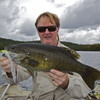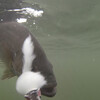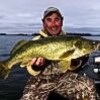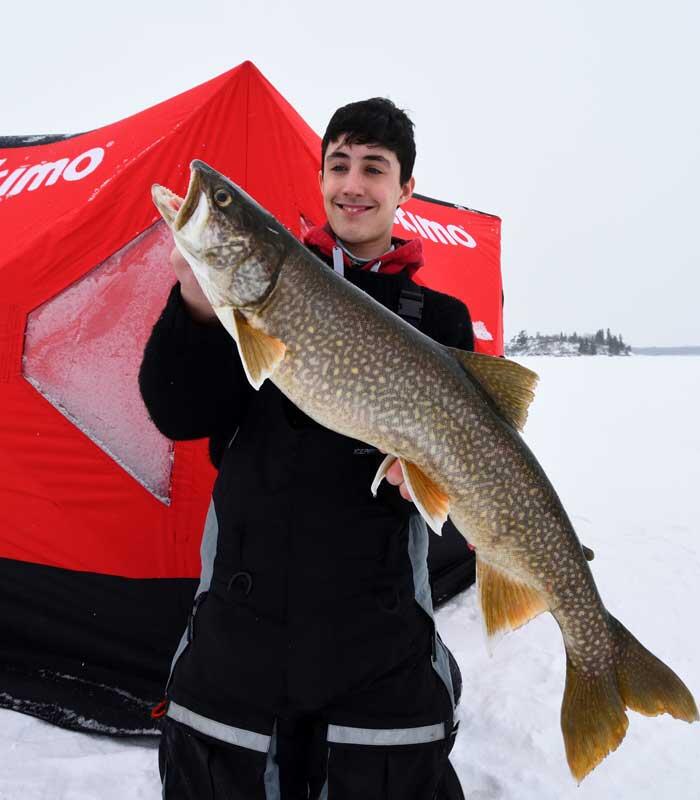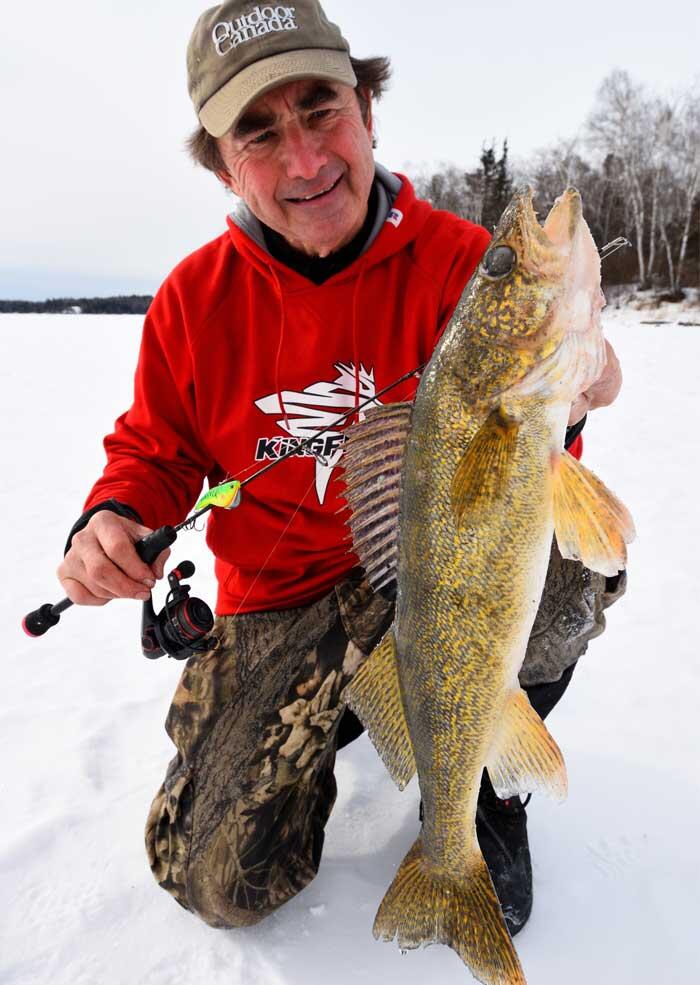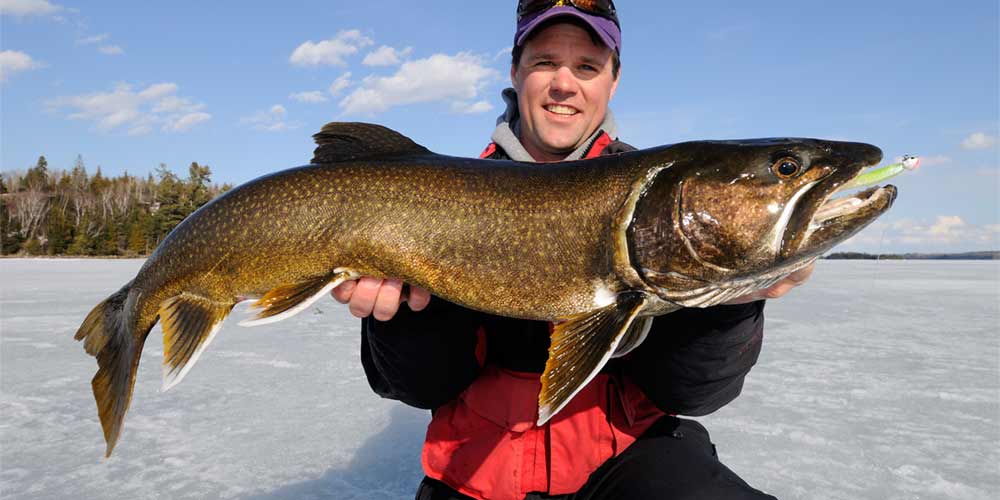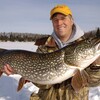
Winter Fish Scents Make Sense
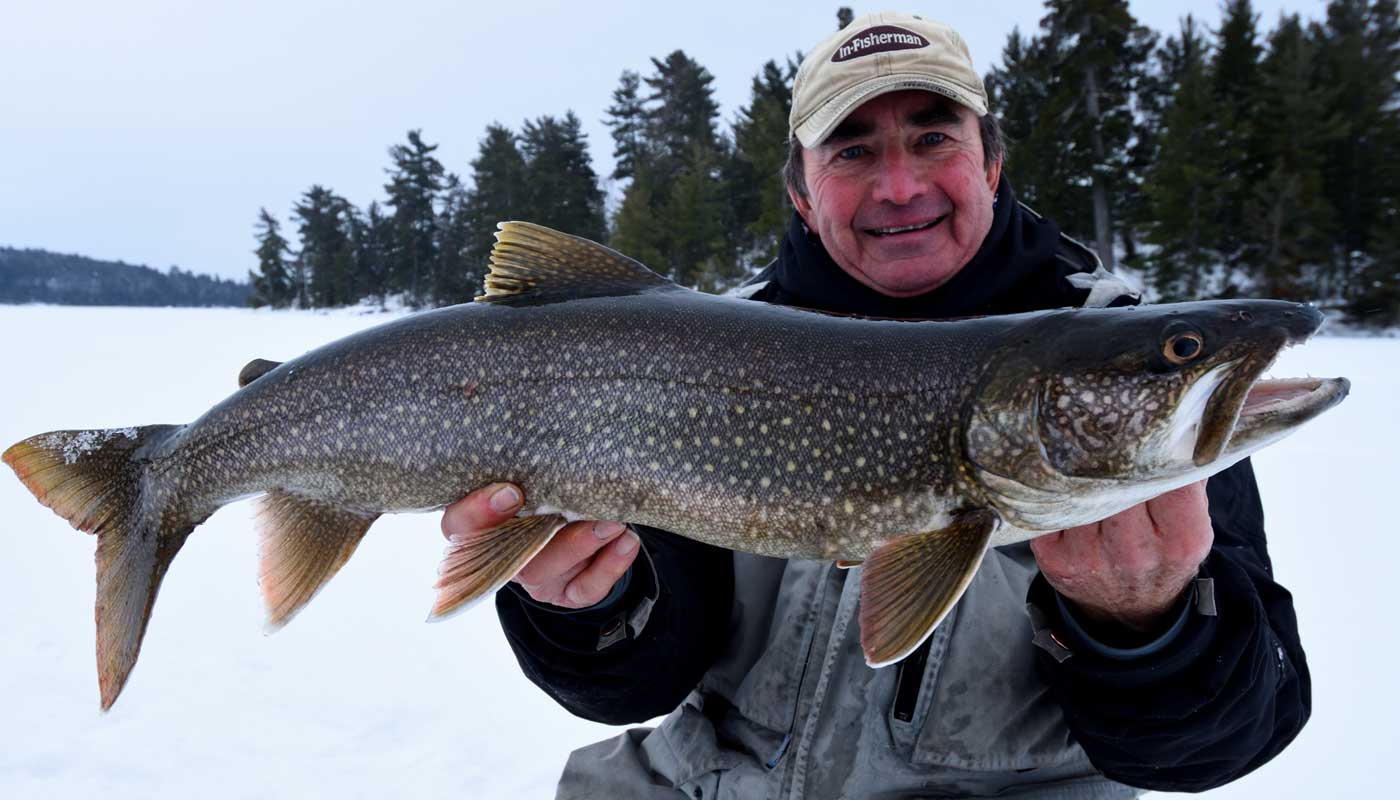
"I guarantee that almost every time you go fishing," says Dr. Keith Jones, "fish sample your lures and you never know it."
It is a pretty scary thought, isn't it? But how many times have you been ice fishing on a Northern Ontario lake for walleye, lake trout, yellow perch, black crappies or some other favourite species and watched a fish on your sonar screen rise up and lock onto your lure? You probably thought it was staring at your bait, sizing up whether or not to eat it. But the reality is that the fish likely smelled, tasted and spat out your bait without you knowing it.
Indeed, according to Jones, who is an expert in fish olfactory senses and the person who invented Berkley Power Baits, "In our test tanks, we'll pull a lure through the water and monitor it with a wide-angle camera. Occasionally, a fish will rush headlong in and eat it out of aggression. But more often, they will come up behind it and follow it. They're evaluating whether or not to eat it. Often, a fish will nip the lure, sample it in its mouth, spit it out, and you will never know it. It is not what the fish wants. But when you make a subtle change, the fish swallows the bait."
For certain, some of the clever changes Jones is referring to include altering the size, action, motion and colour of your lure. But it also includes enhancing its smell and taste.
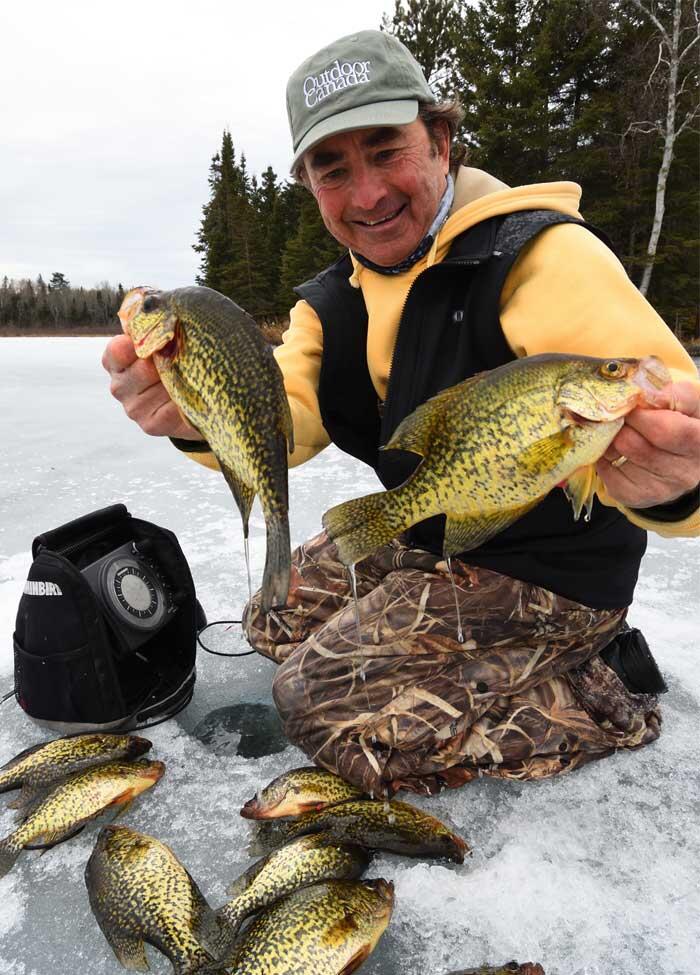
And that is precisely what I was thinking about when I was lake trout fishing in Northwestern Ontario's Sunset Country with my grandson, Liam, recently. Several times, we spotted bright red marks on our Humminbird Ice 55 sonar units streaking up to our baits, hovering beside them, and then disappearing without a bump.
I was certain Liam and I were catching the trout's attention and attracting them with our bright silver and gold Williams Ice Jig spoons dressed with tantalizing minnow heads. But at the very last minute, the fish either smelled or tasted something they didn't like. So, in tribute to the good fish doctor, I splashed some of his Power Bait onto our lures.
And the next trout that rushed up, I mean, literally, the very next lake trout, swallowed Liam's Wabler as though it were the last piece of sushi left on the table.
Talk about a defining moment.
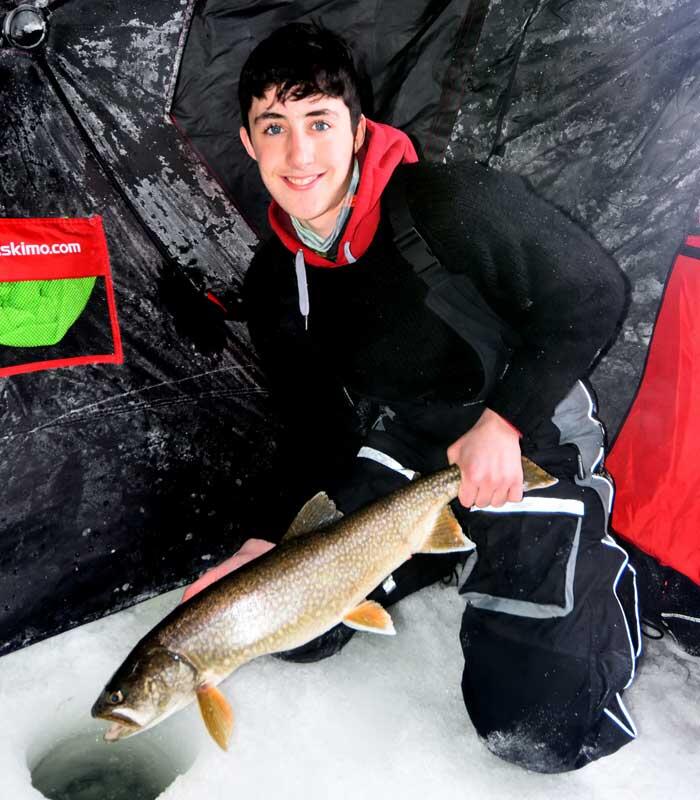
Now, I've interviewed Jones at his elaborate fish lab many times over the years and have always come away fascinated by two things. The first is just how strongly fish rely upon their senses of smell and taste to determine if our baits are edible. The second is how few anglers take advantage of the opportunity by dousing their lures with pleasing, positive odours. Especially when they are ice fishing in the wintertime and the fish are typically negative-to-neutral at best.
When I asked Jones why he thought this was the case, he told me he believed it was because our olfactory senses are so modestly developed that we think fish must rely on theirs the same way. But they don't. And the best way to understand this is to watch how the goldfish behave the next time your kids feed them.
They swim over to the food that they have spotted and smelled, just as we might do when we're walking through the mall and suddenly see and get a whiff of hot, delectable cinnamon buns coming out of the bakery oven.
But, lacking hands to touch the goodies, the goldfish inhale the tiny fish bits, and spit them out repeatedly, as they determine if the texture and taste are appealing. It is precisely how picky walleyes, crappies, perch and trout sample our baits.
Fish have taste buds spread throughout their skin and will often rub against your lure to determine if it is edible.
And get this important detail: Jones says oil-based fish scents don't work. Instead, the odours, aromas, fragrances, bouquets and flavours must be water-soluble in order to pass through a fish's nostrils or be absorbed through its lips.
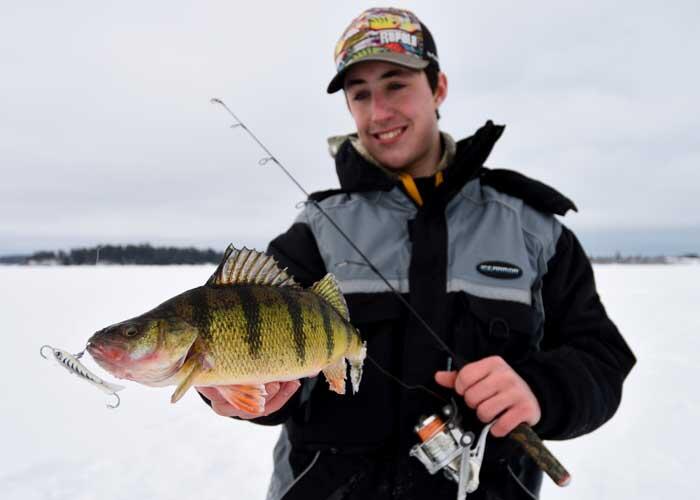
Even more fascinating is the fact that fish have taste buds spread all over their bodies. So, when you see a lake trout or whitefish come roaring up from the bottom and feel it brush against your lure, it didn't miss the bait, but rather rubbed its body against it in order to determine if it was edible.
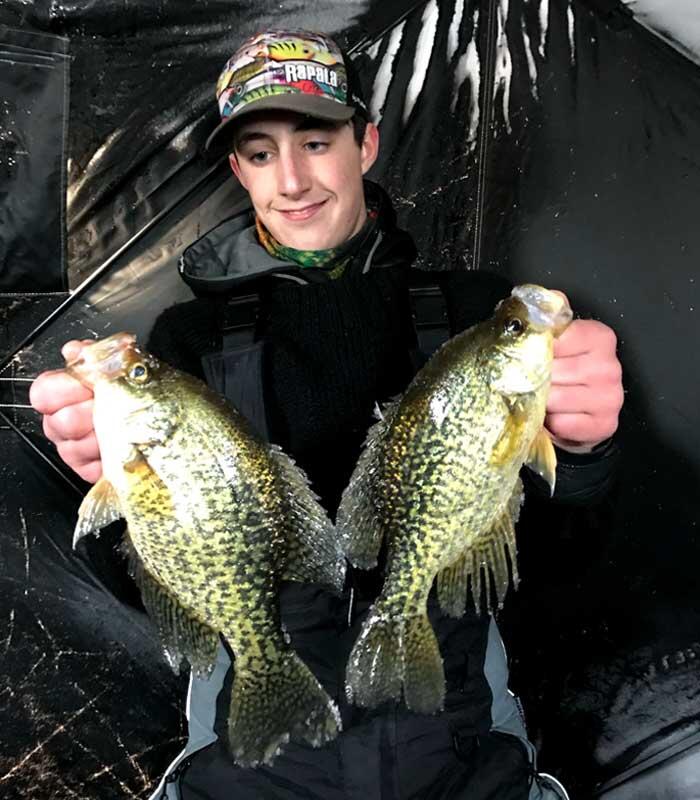
Black crappies will often stare at your lure incessantly, deciding if they should bite it. Scent seals the deal.
So, the next time you're ice fishing on a picture postcard lake in Northern Ontario and spot fish on the sonar screen that seem noncommittal, remember how you turned around and ran to buy one of those ooey-gooey good cinnamon buns. Regularly slather water-soluble fish scent on your lures and wait for the fish to return with their mouths wide open.
Recommended Articles

Eating Northern Pike
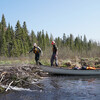
Algonquin Brook Trout
Ontario Brook Trout
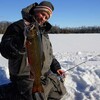
Shoreline Strategies
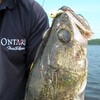
Spring Walleye

10 Facts About Lake of the Woods
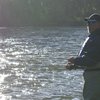
5 Places to Shore Fish
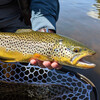
Fly Fishing the Grand River with Mikey Metcalfe

A Guide to Fly-in Ontario Lodges
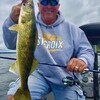
3 Great Ontario Walleye Destinations
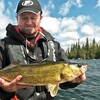
Buck Lake Lodge

3 Surefire Strategies for Canadian Muskies

Leuenberger Air Service Is Your Ticket to Ontario's Best Fishing
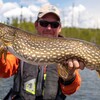
Top Flies for Northern Pike
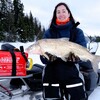
Best WhiteFish Tactics

The Big Bass List: 5 Incredible Hotspots in Northern Ontario
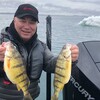
Spring Perch Fishing
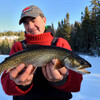
Speckle Splake Spectacular

Lake Mattagami Walleye
